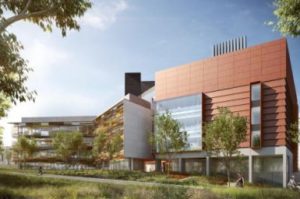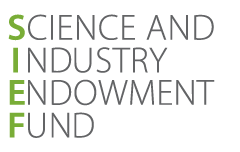National Agricultural & Environmental Sciences Precinct
CSIRO and ANU are working with partners and collaborators to create a globally significant research and innovation sciences precinct in Canberra. SIEF is investing in two key elements of this emerging precinct.
The first element is The Centre for Genomics, Metabolomics and Bioinformatics, which is a collaborative facility between CSIRO and ANU aiming to revolutionise the conversion of gene discovery to crop deployment and environmental management. New and existing infrastructure has been integrated to provide a ‘one-stop shop’ for an integrated approach to plant breeding and resource management. The emphasis of the project was to (1) unblock existing equipment and hardware limitations in the research-to-impact workflow, and (2) build the capacity to convert large, unique data sets into new knowledge through shared development of bioinformatics expertise and capacity. It will enable researchers to relate traits in plants to their biochemistry and to their genes for those many traits that have been beyond contemporary analysis. This will enable more efficient approaches to plant breeding and to understanding the interactions between plants and the other organisms in the environment.
In addition to achieving the aims described above, other activities and outcomes were achieved through the establishment of the CGMB.
- Leveraging the funding from SIEF, CSIRO and ANU, the Centre was successful in receiving an Australian Research Council Linkage Infrastructure Equipment and Facilities grant that was used to acquire an advanced a mass spectrometer for joint use by ANU and CSIRO.
- The establishment of two large scale initiatives: the CSIRO Environomics Future Science Platform and the Bioplatforms Australia funded project Oz Mammals. Oz Mammals is collaborative project involving over thirty partners, creating a dataset of Australian mammal species that will underpin evolution studies and conservation strategies. The Environomics Future Science Platform is a CSIRO science program aiming to develop new ways to study the genetics of an ecosystem in order to make use of the genetic resources, and to understand and care for biodiversity. CSIRO is partnering with national and international organisations to achieve its aims.
- The spirit of the SIEF project will endure through two joint initiatives, the Centre for Entrepreneurial Agri-Technology (CEAT) and the Biological Data Science Institute (BDSI). Both have inherited broader aims of the SIEF project and together they will facilitate the progression from data to knowledge (principally BDSI) to translation (principally CEAT). CEAT is already showing signs of success featuring an innovation hub that is home to five businesses. BDSI is operating with about twenty staff who are working on collaborative projects such as utilising machine learning for plant phenomic data.
The second element of the SIEF funded project was the construction of a new life sciences building on the CSIRO Black Mountain Science and Innovation Park to ensure that CSIRO’s laboratories, microscopy and analytical facilities continue to support research excellence. This development will be a major platform for co-location of external collaborators and will complement the extensive infrastructure investments that ANU has undertaken over the past decade by housing some of the SIEF-funded equipment, including a high throughput glass house.

An artist’s impression of the CSIRO facility
The National Agricultural and Environmental Sciences Precinct will bring transformative changes to the way that research and innovation are conducted in the Precinct by fostering integrative and collaborative work patterns; and by enabling joint access to a suite of facilities.
This precinct will foster research and innovation essential to food security and environmental stewardship in the face of climate change, population growth and land degradation. It will enable the delivery of new or improved crops, with improvements in yields and nutrient profiles. It will provide enabling and innovative solutions to environmental management. It will link with partners in the ACT and other states and will continue to build on its already strong links with Australian and global life sciences companies.
For further information please contact:
Jen Taylor, CSIRO jen.taylor@csiro.au
